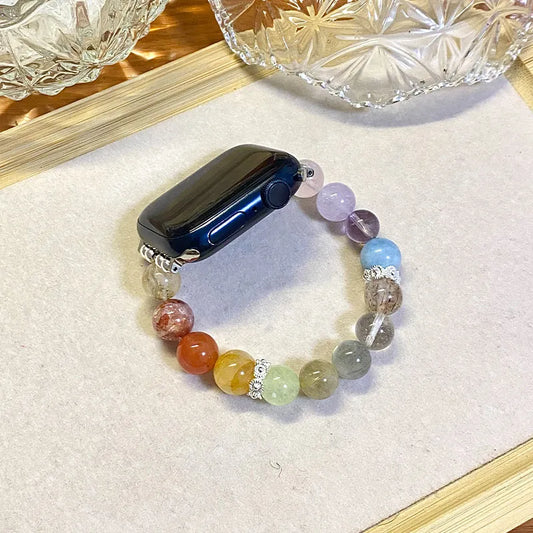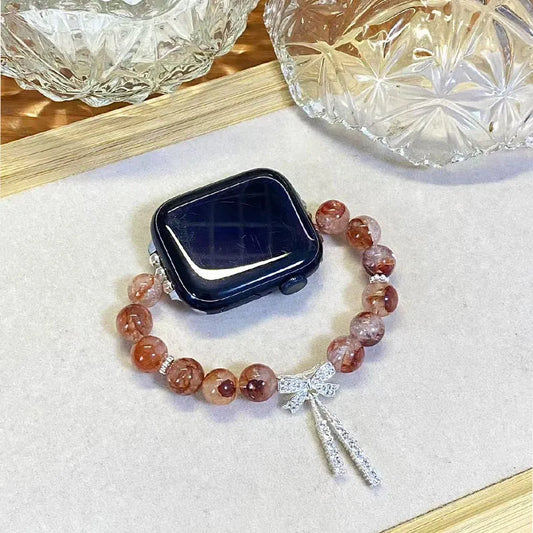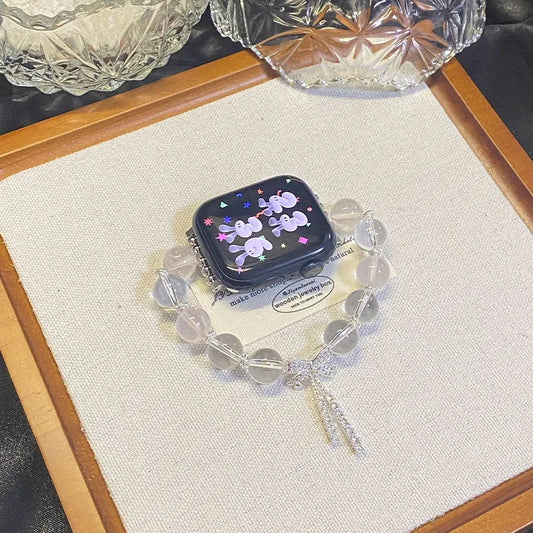If you’re an Apple Watch enthusiast, you know how important it is to switch up your style from time to time. Whether you're heading to the gym, attending a formal event, or just want something comfy for a lazy Sunday at home, the right band can completely transform your watch.
But as you browse the endless options, a question often pops up: are apple watch bands universal?

Imagine you just upgraded to the latest Apple Watch, but your favorite band from last year’s model doesn’t seem to fit. Frustrating, right? Understanding compatibility can save you time and help you avoid those disappointing moments.
In this article, we’ll dive into which Apple Watch bands are universally compatible across different series, so you can mix and match with confidence and style. Let’s explore the world of Apple Watch bands together!
Key Differences Between Series
While the functionality and design have evolved, one of the main differences between Apple Watch series is the case size.

Early models like the Series 1 to 3 had 38mm and 42mm options.
Later models, from Series 4 (5,6,SE) onwards, have 40mm and 44mm sizes,
with Series 7 (8, 9) introducing 41mm and 45mm sizes.
The Apple Watch Ultra (1, 2) boasts a 49mm case,
and the recently launched Series 10 features new sizes of 42mm and 46mm.
Apple Watch Band General Compatibility Rules
In short, the design of the Apple Watch takes compatibility into account. Each series offers two sizes: a small and a large option. Starting with the initial Series 1-3, which had 38mm and 42mm sizes, the subsequent Series 4-6 introduced 40mm and 44mm sizes. The Series 7-9 continued this trend with 41mm and 45mm options, while the latest Series 10 features 42mm and 46mm sizes. Additionally, the Apple Watch Ultra comes with a 49mm case. This consistent approach to sizing ensures that users can easily interchange and pair bands across different series.
Band Sizes and Their Corresponding Series
| Apple Watch Size | Compatible Series |
|---|---|
| 38mm / 40mm / 41mm / 42mm |
|
| 42mm / 44mm / 45mm / 46mm |
|
| 49mm |
|
Interchanging Bands Across Different Series
Practical Examples
If you have a 40mm Series 6 and a 38mm Series 3, you can swap the bands between these two watches without any issues.
User Experiences
Many users find that interchanging bands is straightforward, provided they stick within the compatible size ranges. It's a great way to refresh the look of your watch without buying a new one.
Why Compatibility Matters
Fit and Comfort
A properly fitting band ensures that your Apple Watch stays in place, providing accurate health data and a comfortable wearing experience.
Security and Performance
Using the right band size also ensures that the watch stays securely on your wrist, preventing accidental drops and damage.
Choosing the Right Band for Your Apple Watch
Factors to Consider

- Wrist Size: Measure your wrist to ensure the band will fit comfortably.
- Activity Level: Active users might prefer sport bands, while those looking for a more elegant look might choose leather or metal bands.
- Style: Choose a band that fits your personal style and matches your daily wear.
Popular Band Types and Their Features

- Sport Loop: Durable and sweat-resistant, ideal for workouts.
- Leather Bands: Stylish and comfortable for everyday wear.
- Milanese Loops: Elegant and adjustable, perfect for formal occasions.
How to Change Your Apple Watch Band
Step-by-Step Guide
- Remove the Watch from Your Wrist: It's easier to change bands when the watch is not on your wrist.
- Press the Band Release Button: Located on the back of the watch.
- Slide the Band Across: The band should slide out easily.
- Insert the New Band: Slide the new band in until you hear a click.
Tips for a Secure Fit
Ensure the new band clicks into place and doesn't slide out when you pull on it gently.
Maintaining Your Apple Watch Band
Cleaning Different Materials
- Silicone Bands: Use a damp cloth and mild soap.
- Leather Bands: Wipe with a dry cloth; avoid water.
- Metal Bands: Clean with a microfiber cloth.
Storing Your Bands Properly
Keep your bands in a cool, dry place, away from direct sunlight and moisture.
Conclusion
In conclusion, while Apple Watch bands are designed with compatibility in mind, not all bands fit every series. Understanding the size differences—from the original 38mm and 42mm options to the more recent 41mm, 45mm, 42mm, and 46mm sizes—helps you make informed choices. It’s a bit like finding the perfect pair of shoes; you want something that not only looks great but feels comfortable too!
FAQs
How to find your Apple Watch size easily?
Check the back of the watch, use the Watch app, or reference the original packaging. Learn more...
Differences between 40mm and 44mm models?
The primary differences are in physical dimensions, display size, and weight.
Why does Apple offer different sizes?
To cater to different wrist sizes and user preferences for display and comfort.
Can you switch bands between different sizes?
Bands are designed for specific sizes, so make sure to match the band size with your watch size.
Tips for first-time Apple Watch buyers?
Consider your wrist size, how you plan to use the watch, and your personal style preferences when choosing a size.







